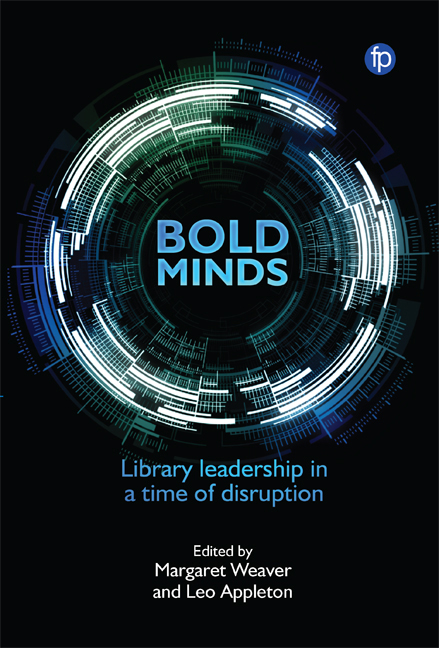Book contents
- Frontmatter
- Contents
- Foreword
- Contributors
- Preface
- Introduction
- Section 1 Views From the Corridors of Power: The Political and Global Perspective
- Section 2 The Re-Birth of Libraries – New Business Models and Re-Generation of Services
- Section 3 Who Really Matters? User Communities and Alignment
- Section 4 The Future Library Professional – Horizons and Challenges
- Index
6 - Repositioning the Academic Library to Drive Innovation and Agility
Published online by Cambridge University Press: 15 December 2020
- Frontmatter
- Contents
- Foreword
- Contributors
- Preface
- Introduction
- Section 1 Views From the Corridors of Power: The Political and Global Perspective
- Section 2 The Re-Birth of Libraries – New Business Models and Re-Generation of Services
- Section 3 Who Really Matters? User Communities and Alignment
- Section 4 The Future Library Professional – Horizons and Challenges
- Index
Summary
Introduction
A 21st-century library's strategy is positioned within a changing international context (Brundy, 2015). Knowledge creation is rapidly adapting and technological advances provide several new opportunities. The Fourth Industrial Revolution is intensifying the digitalisation of processes, products and services (Denning, 2018). Based on a case study at the Department of Library Services (DLS), University of Pretoria (UP), the main aim of this chapter is to demonstrate how the ‘Blue Ocean strategy’ and an adaptive leadership approach assisted in the identification of nine strategic focus areas to ensure a rapid response to emergent opportunities and changing user needs.
The ‘Blue Ocean strategy’, based on the book published by Kim and Mauborgne (2015), takes a reconstructionist view of strategy, which is built on the theory of endogenous growth. The authors argue that organisations should strive to avoid competition in existing industries (red oceans) and focus on innovation (blue oceans). The ‘Blue Ocean strategy’ offers a framework to guide leaders to build a strong people proposition by assisting them in mobilising the entire organisation to actualise a strategic move and successfully executing it in the logic of value innovation (Mi, 2015).
To put the current case study in context, the following section will commence with an overview of the South African higher education environment. A brief literature review will provide background to the discussion of the case study. The chapter concludes with a few remarks on lessons learned and recommendations.
Context
The local environment
During 2015, the higher education system in South Africa was faced with increased student activism, where students were advocating for transformation and inclusivity as they felt a sense of alienation at some universities (Godsell et al., 2016). These protests were a demonstration against ever-increasing fees. Students demanded free education, an end to outsourcing of contract workers, adequate student housing, as well as advocacy for the decolonisation of the curriculum (Makhanya, 2019). In addition to this, higher education in South Africa had also been confronted by debates of gross underfunding of the sector (USAF, 2017).
- Type
- Chapter
- Information
- Bold MindsLibrary Leadership in a Time of Disruption, pp. 101 - 122Publisher: FacetPrint publication year: 2020
- 1
- Cited by



